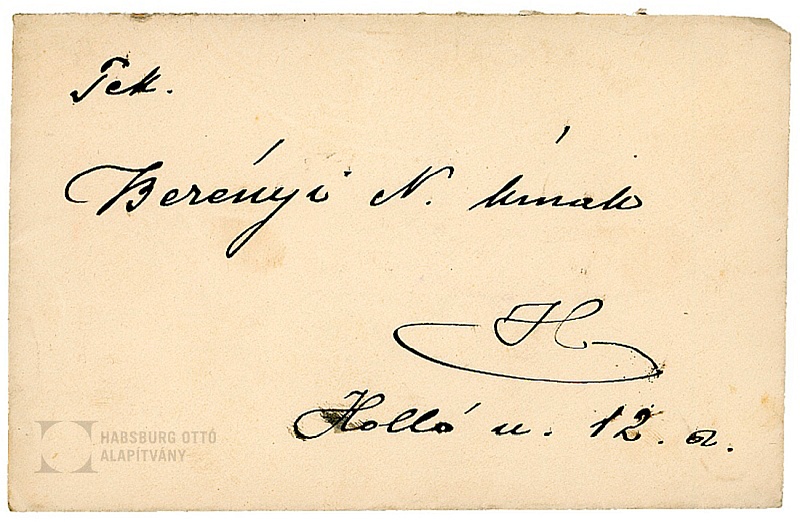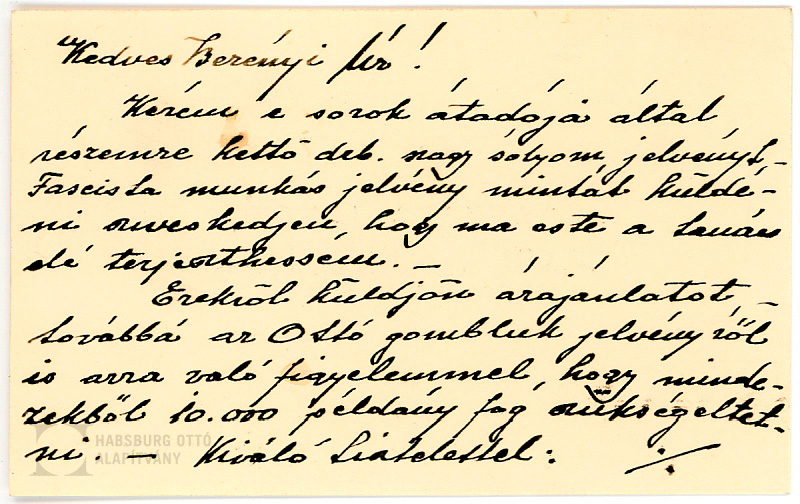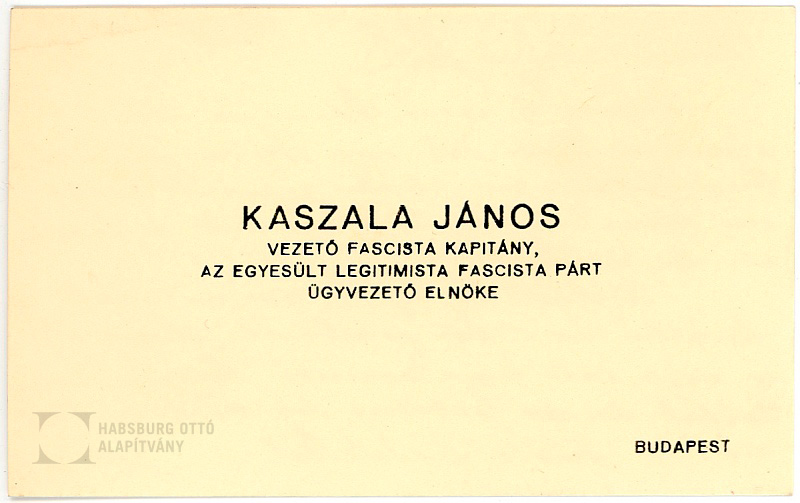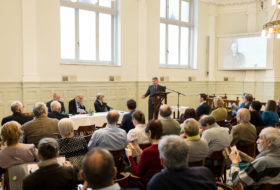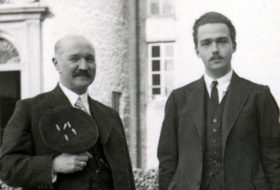The emergence of radical right-wing parties in Hungary in the early 1930s coincided with the Great Depression. The economic and financial crisis put broad sections of Hungarian society in a difficult situation. Rising social tensions focused attention on those economic and political issues that favoured both far left and far right political movements, thus providing fertile ground for the creation of various formations.
It was in this political situation that János Kaszala, whose noisy political career was mostly a series of swindles, operated. Kaszala, who was born in Pilis in 1900, first worked as a jewellery salesman, then as a gendarme, from which position he was discharged for misconduct. He then became involved in setting up all sorts of – in today’s terms – fake parties, on which he based his career, and saw fraud as the key to his prosperity. First he founded parties under the names Hungarian Fascist Party (Magyar Fascista Párt) and Hungarian Irredenta Fascist Party (Magyar Irredenta Fascista Párt). Later, the aforementioned fascist-legitimist formation appeared, followed by the foundation of another political faction, called the National Order Party (Nemzeti Rend Párt). Then he became the leader of the Fascist Eagles fraction of the Arrow Cross. All these parties were usually formed without the approval of the Ministry of Interior and existed in name only. In the course of these activities, Kaszala has been brought to court several times for “bail fraud” (the misuse of the security deposit). He hired office workers, promising them good salaries and other commissions after a security deposit, but they were usually never paid back.
In 1932, after his release from the collective prison, with several others he founded the United Legitimist Fascist Party (Egyesült Legitimista Fascista Párt), registered at 3 Peterdi Street, and became its executive president. They had no serious connection with functioning legitimist parties, for example the National Legitimist People’s Party (Nemzeti Legitimista Néppárt) of Miklós Griger had officially distanced itself from them. Kaszala soon initiated a new kind of “pumping action”. He produced Otto commemorative coins made of plaster to mark the upcoming birthday of the heir to the throne. He then began to distribute the plaster coins, worth a few pennies, to legitimist-minded individuals through employed agents for two pence each. Kaszala made the employees swear on the picture of “Prince Otto” and made them promise not to tell anyone about what happened in the party. He managed to sell a few hundred coins, when the political department of the headquarters became aware of the actions. Kaszala was placed under pre-trial detention, and was subsequently convicted of embezzlement of bail and credit fraud. In the sentencing of János Kaszala, the court considered as a significant mitigating circumstance the fact that the convicted defendant used the embezzled funds not for his own purposes, but for the purposes of his party, and sentenced him to one year and four months in prison.
The document presented here is the business card of János Kaszala with a message to Lajos Berényi, the owner of the First Hungarian Vitreous Enamel and Pin Factory, which was still in operation not so long ago. According to this “Dear Mr Berényi! Through the deliverer of these lines, please send me two large falcon badges, Fascist Workers badge samples, so that I can present them to the council tonight. Please send a quotation for these, and also for the Otto buttonhole badge, bearing in mind that 10 000 copies of each of these will be needed.” Given Kaszala’s “work record”, one suspects that the deal offered did not materialise.
In 1935, after János Kaszala and his fellow party members were arrested on bail for embezzlement and fraud, the United Legitimist Fascist Party did not yet cease to exist. János Somogyi, a man with multiple criminal convictions, took over the leadership of the party and continued where his predecessors left off. Somogyi employed, among others, as a typist the daughter of the former Fire Chief of Budapest, the late Szilárd Breuer. Józsefné Locsmándy, born Szilvia Breuer, gave Somogyi a deposit of four hundred pengő, the money she had saved. Somogyi was arrested by the police for deposit embezzlement.
Running political organisations for financial gain is not a new invention, nor has it been a long-term success in the past. For the victims of János Kaszala, who was fishing in the troubled waters of party politics, this was of course only a small consolation, but in the end the “party founder” disappeared into the political abyss, discredited – and with a prison sentence to serve.
Szilveszter Dékány


